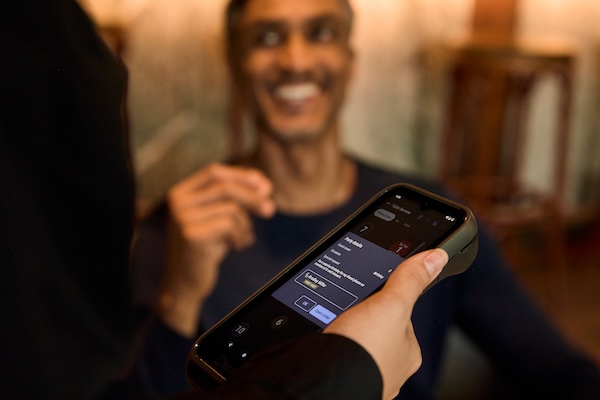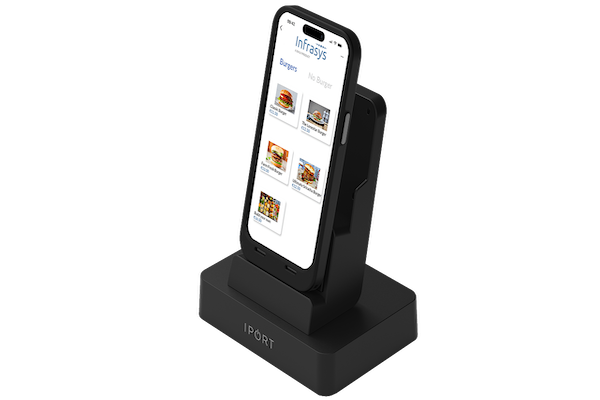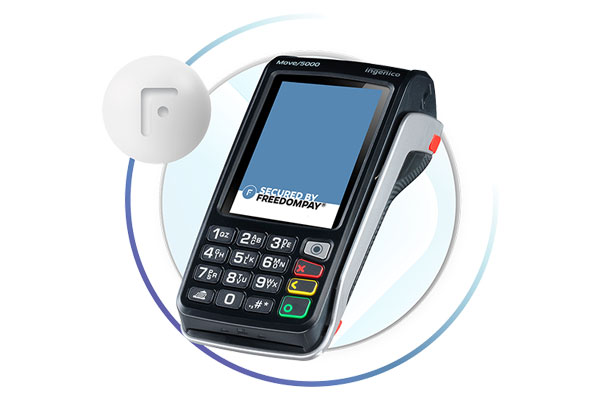Hotels succeed and fail on their ability to make a buck. But in order to make money, properties must have the technology to collect each and every dollar spent. That is where point of sale, or POS, comes into play—it’s a system that handles transactions for services such as food and beverage, spa treatments and retail shopping. Today’s POSs have evolved from clunky legacy systems to cloud-based systems, completely overhauling hotel food and beverage operations. Modern hotel POS systems automate and integrate various functions, including payment processing, real-time sales and inventory tracking, guest data management and reporting, which can significantly improve operational efficiency and the overall guest experience. They’ve also gone mobile. Here are five POS systems that make sure hotels get paid in full.
Company: Toast
Find them @: pos.toasttab.com
Toast is ubiquitous in restaurants, powering an assortment of services from taking orders and processing payments to managing online orders and integrating with other management tools. Today’s POS systems give customers the flexibility to pay on their own terms, noted Rick Hertan, director of hotels and resorts at Toast, from a self-service kiosk in a sundry shop to ordering room service through a phone. “These options not only meet guests where they are, but also elevate their overall stay,” he said. This year, Toast launched a variety of features for F&B teams, including a menu upsells beta feature that prompts staff to suggest recommended additions to a guest’s order, directly from their handheld or POS terminal. At the same time, a hotel POS has to integrate with the PMS—the brains of the property. “When the POS and PMS work together, hotel operators gain a more holistic view of each guest, including their dining preferences and room charges,” Hertan said. Toast’s latest handheld device model, Toast Go 3, allows servers to take orders from anywhere on property. “The innovation taking place provides hotel guests with an unparalleled experience, while offering properties an opportunity to drive more revenue through their F&B outlets,” Hertan said.

Company: Agilysys
Find them @: agilysys.com
Mobile has become the new payment expectation for hotel guests. It’s something Agilysys, which offers a suite of products for the hospitality industry, is at forefront of providing. “As POS moves deeper into the cloud and mobile-first environments, flexibility and reliability become critical,” said Rohith Kori, SVP of product and corporate strategy at Agilysys. “Today’s operators need systems that let them choose the right device for each service scenario, such as tablets for poolside or beachfront dining, and fixed terminals for busy counters, all while maintaining a smooth guest experience.” The movement from static terminal to “anywhere, any place, at any time” improves revenue generation and ameliorates the guest experience. “POS systems have moved away from pure traditional countertop devices that sat behind the counter with the employee on one side and the guest on the other,” he said. “POS systems of today allow the employee and the guest to interact in a manner and channel of their choosing.” At the same time POS systems today don’t just take payment, but can offer services such as inventory management, providing kitchen staff with a view of perpetual inventory of items. Agilysys’s Agilysys Pay product provides payment protection with the support of payment terminals for every scenario.

Company: Shiji Group
Find them @: shijigroup.com
Hospitality products at Shiji run the gamut, providing a holistic operational platform. Its Infrasys POS has an API-first infrastructure with dozens of integrations built in. It’s been a go-to choice for hotel companies from Mandarin Oriental to Hyatt. “We start with the user experience and design everything backwards from there,” said Christine Lising, director of solutions engineering team at Shiji Group, Americas. Smartly, Lising acknowledges the shift in labor trends coming out of the pandemic and their perpetual impact on technology. “For years, POS systems were built primarily with function in mind—they got the job done, but weren’t exactly intuitive,” she said. “The pandemic and the staffing challenges that followed really pushed the industry to rethink that. Today, POS is much more about ease of use and making life easier for staff, because happy, confident employees translate directly into better guest experiences.” Lising adds that since many hotels now rely heavily on seasonal or contract staff, the ability to get people up to speed quickly is critical. “Complicated systems just slow things down,” she said. As POS moves further into the cloud and expands mobile functionality, hotel operators face a challenge that’s often underestimated, Lising argues: staff adoption. “The biggest hurdles aren’t about features; they’re about reliability. Spotty connectivity, dead batteries or clunky interfaces can quickly push staff back to legacy workstations they know will just work. Any mobile POS strategy has to be grounded in reliability, flexibility and scalability,” she said.

Company: FreedomPay
Find them @corporate.freedompay.com
No technology product is immune to AI impact. POS is no different and the upside is higher sales, notes Kevin Carson, SVP of global business development for FreedomPay, a cloud-based commerce platform and payment gateway. “AI-powered pay-at-table technology will analyze customer behavior and proactively suggest add-ons, driving impulse purchases and increase average order values,” he said. Furthermore, POS must accommodate all types of payments, which increasingly are hedging toward digital. “The rise of mobile-first shopping is fueling the adoption of digital wallets,” Carson said, pointing to a recent internal study showing that outdated payment systems are driving customers away. “The future lies in pure mobile payments, where a guest’s smartphone initiates the payment, eliminating the need for dedicated merchant hardware and enhancing security through virtual wallet technology. Hospitality companies can gain a competitive edge by embracing digital wallets. “It is critical that businesses adopt a unified, omnichannel commerce strategy to meet modern consumer demands,” he said. At the same time, advancements in technology present security challenges. Advanced security measures like PCI-validated Point-to-Point Encryption (P2PE) and tokenization can streamline operations and safeguard transactions, Carson noted. “To minimize that risk, businesses can modernize their payments infrastructure on a platform that gives them access to an array of security features,” he said.

Company: Oracle
Find them @: oracle.com
Oracle is synonymous with technology that powers hospitality: Its Simphony POS does 6.3 billion transactions annually, boasts more than 200 integration partners and its unified payments workflow offers guests flexible and secure payment options, including pay-at-table, mobile payments or charge to their room. “The result is higher guest satisfaction and an elevated hospitality experience from start to finish,” said Mark Page, hotel market strategy director for Oracle Restaurants. Modern POS systems, Page said, are transforming the F&B experience by enabling seamless mobile and QR-based ordering, integrated payments and automated kitchen workflows. “Guests can place orders anywhere. This reduces wait times and minimizes errors, resulting in smoother service,” he said. One of the most important elements of a POS is its ability to seamlessly integrate with the PMS to enhance personalization. Harmoniously, Simphony does this with Oracle’s Opera PMS. “This enables F&B teams to instantly access key guest details, such as special requests, loyalty status and allergens, helping to ensure truly personalized service throughout the property,” Page said. “For hotel owners and operators, this integration centralizes data, reduces manual processes and delivers more accurate sales reporting.” Now, that’s music to everyone’s ears.


